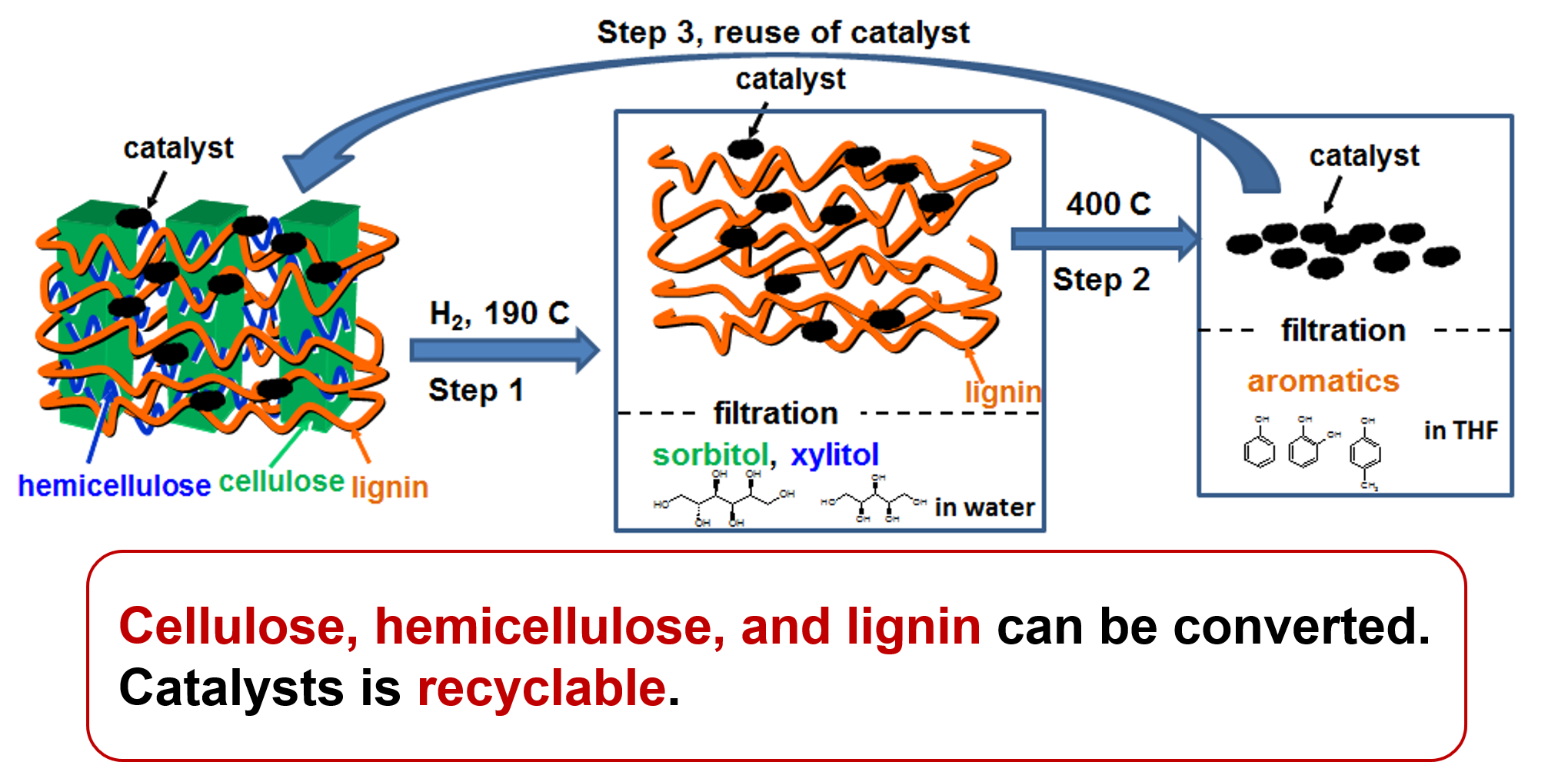Organic Material Conversion Group
Our goal is to develop conversion technologies more efficiently than conventional methods, minimizing environmental load and toxicity to human. To achieve the goal, we investigates novel conversion technologies (i) using solid catalysts in water or carbon dioxide under high-temperature and high-pressure conditions, and (ii) using enzymes encapsulated in mesoporous materials that improve the stability and durability of enzymatic activities.
Main Research Subjects
1. Conversion technologies of unused carbon resources (biomass)
Cellulose, hemicellulose, and lignin, which are main components of biomass, can be converted sequentially into useful chemicals. Sugar alcohols, which are obtained from cellulose and hemicellulose, can be dehydrated into valuable monomers.

2. Microreactors using enzymes encapsulated in mesoporous materials
Microreactors containing immobilized enzymes have attractedmuch attention in chemical engineering. Enzymes encapsulated in mesoporous materials improve the stability and durability of enzymatic activities and can be applied to flow reactor system.
